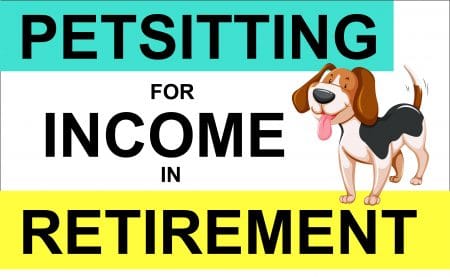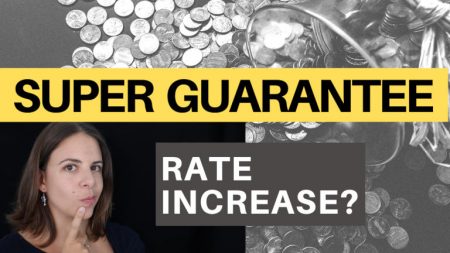
When Can I Access My Super? A Simple Video Guide
- RetireOn
- Updated: May 20, 2022
When can I access my super? Am I able to access it early? How should I take the money out from my super? Should I do it as a regular pension payment or as a lump sum?
At some point in people’s lives, these questions arise. The problem is, most people don’t have an answer for them! Knowing when and how to access the money in your super is critical during retirement planning.
In this post and video, we’ll provide the answers to these questions for you and go through the basics of what you need to know.
Video Guide
When To Get My Super
Let’s start with when you can access your super. You are able to access your super once you turn 65 years of age, independent of your retirement status – meaning you can keep working if you wish to, but still access your super.
You may also access the money once you reach, what they call, “preservation age” and are fully retired. This is known as the minimum age, set by law, that your super must be preserved until. This is determined by when you were born.
| Date of birth | Preservation age in years |
| Before 1 July 1960 | 55 |
| 1 July 1960 -30 June 1961 | 56 |
| 1 July 1961 -30 June 1962 | 57 |
| 1 July 1962 -30 June 1963 | 58 |
| 1 July 1963 -30 June 1964 | 59 |
| After 30 June 1964 | 60 |
Once you reach preservation age, you can access your super as long as you are permanently retired.
In case you have not yet done so, you can still access parts of it through a transition to retirement pensions.
Rules To Access My Super Early
There are several limited circumstances which allow you to access your super early before you reach preservation age. For example:
- Incapacity – you suffer a permanent or temporary incapacity.
- Severe financial hardship – if you have received Commonwealth benefits for 26 continuous weeks but are still unable to meet immediate living expenses.
- Compassionate grounds – if you have to pay for medical treatment if you are seriously ill.
- Terminal medical condition – if you have a terminal illness or injury that is likely to result in your death within 2 years. This needs to be certified by two registered medical practitioners, at least one of whom is a specialist.
- If you leave Australia permanently.
- Balance is lower than $200 – you have less than $200 in your super account.
You can read more about these circumstances on the official ATO website.
How To Access My Super
Now, let’s take a look at what options you have to access the money in your super. There are three ways you can do this.
As a continuous income stream (pension), you can take it out as a lump sum, or you can get a combination of both.
1. Income Stream
This is called a super pension or account-based pension. In order to access your super in this way, you have to transfer your accumulation account into an account-based pension account.
This allows you to receive a regular income while the money you don’t use is still invested and acquires returns.
Three things you need to know about this are:
- There is a minimum amount you have to withdraw each year depending on your age. Currently, if you are aged between 65 and 74, you must withdraw at least 5% of the balance each year.
- Investment returns are NOT taxed, and if you are 60 years old or over, your income payments will also be tax-free.
- There is a maximum amount you can have in an account-based pension account. The cap is $1.6 million effective since 1st July 2017.
2. Lump Sum
Instead of getting a regular income, you can take a lump sum out of your super account. This can be as much or as little as you would like.
However, it’s important to keep in mind that taking out a lump sum can have tax and Centrelink implications. For example, the investment returns outside a super fund are usually taxable.
Furthermore, if you make a mistake, you may NOT be able to put the money back into your super account.
Also, keep in mind that if you are over 60 years old, you can access your super tax-free.
3. Combination Of Both
Most accumulation accounts and some defined benefit funds allow you to do a combination of both – take some cash out as a lump sum and convert the rest into regular income.
Most account-based pensions will also allow you to withdraw lump sums in the future.
But, keep in mind that taking out a lump sum may reduce the amount of regular income you receive and affect how long your money will last.
The ASIC Money Smart website has further information on getting your super.
Going Back To Work After Having Accessed My Super
Yes, you can. This is independent on how you accessed your super; as a lump sum or as a super pension. However, you will have to prove that your personal circumstances have changed and that you are required to return to work.
When you first accessed your super or when you retired, you may have had to sign a declaration required by your super fund. Most super funds require such a declaration, stating that you do not intend to go back to work for more than 10 hours per week.
This is the limit; 10 hours of paid work per week is not considered employment, and you will still be deemed as retired.
Finally, one last thing. You may have to prove to the ATO and the Australian Prudential Regulation Authority that your intention to retire was genuine and that you did not plan to return to work all along.
We hope we were able to answer your questions regarding accessing your super fund. Did you have any further questions? Please comment them below, and we’ll discuss them with you!
For more retirement-related content, including tips and more answers related to your retirement questions, we recommend having a look at our YouTube Channel or our Free Learning page on the Retire On website.










